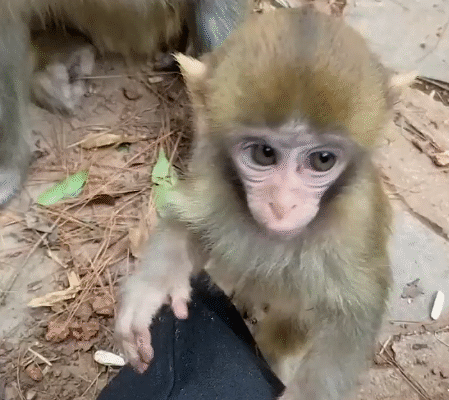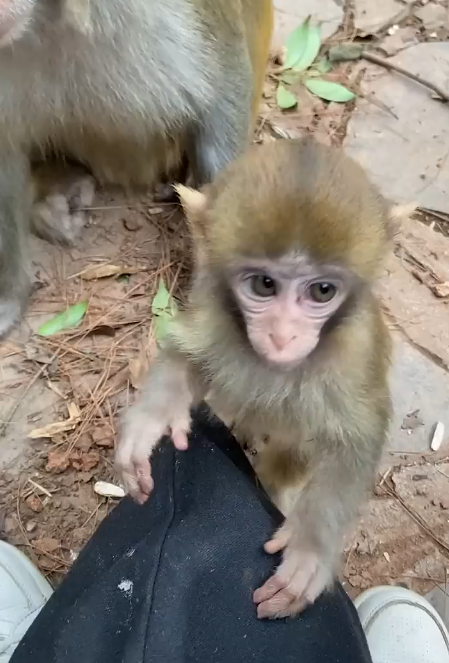
Morning sunlight glistened through the dense canopy of the jungle, scattering golden rays across the green leaves. The forest was alive with sounds—chirping birds, rustling branches, and the chatter of little monkeys playing on the treetops. But high above them, perched on a sturdy branch of an ancient fig tree, sat the Big Monkey, the protector and leader of his troop.
His name was Boro, and he wasn’t just large in size—he was large in heart, strength, and wisdom. His fur was deep brown with streaks of silver down his arms, a mark of age and authority. His sharp amber eyes missed nothing. Every rustle in the leaves, every shadow that moved, he noticed. That’s why all the younger monkeys felt safe when Boro was watching over them.
Boro was known throughout the forest as the vigilant one. When the wind changed, when the eagles circled too low, or when humans ventured too close, Boro was always the first to sense danger. He never slept too deeply, never ate too quickly, and never let his guard down. The troop depended on his awareness, and he took that responsibility seriously.
The Calm Before Trouble
That day began like any other. The troop had woken early, foraging for fruits, insects, and young shoots. The little ones—Lala, Tiko, and Bon—were chasing each other around the branches, laughing and tumbling. The mothers watched with amused smiles. Life was peaceful, and even the cicadas seemed to hum in rhythm with the forest’s heartbeat.
But Boro sat quietly, chewing a ripe banana, his eyes scanning the distance. Something felt off. The birds that usually sang from the eastern ridge were silent. The air smelled faintly of smoke.
He tilted his head, listening. The jungle might seem loud to others, but Boro heard patterns in the noise. When something disturbed those patterns, he noticed immediately. He gave a low grunt—hoomph—a signal to the others to stay alert.
The troop froze. They trusted Boro completely. The mothers gathered the babies close, and the young males stopped their games, glancing around nervously.
Moments later, the faint crack of a branch echoed through the trees. Boro’s ears twitched. He knew that sound. It wasn’t an animal. It was a human.
The Hunter Returns
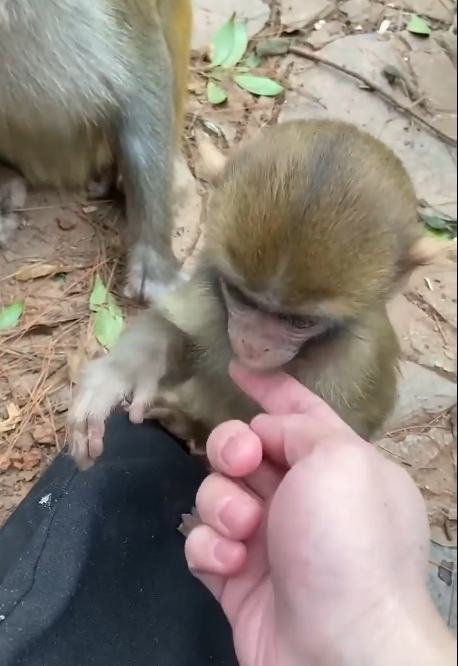
Boro remembered the last time humans came. They had brought shiny traps that smelled like metal and sweet fruit. Two young monkeys had been caught. The troop had mourned for days. Since then, Boro never allowed anyone near the lower branches when he sensed humans.
He leaped silently to the next tree, his strong limbs moving like a shadow. He saw them—two men with nets and sticks, creeping through the underbrush. They were whispering, pointing toward the banana grove where the troop often played.
Boro’s eyes narrowed. “Not again,” he thought.
He let out a low growl—a coded warning only his troop understood. Instantly, every monkey moved higher into the trees. The little ones were carried on their mothers’ backs. Fruits and leaves fell as they climbed, but no one made a sound.
Boro stayed behind, watching. His mind was sharp, his instincts sharper. He noticed that one man had left the group and was circling around the grove, trying to cut off the monkeys’ escape. Clever—but not clever enough for Boro.
The big monkey picked up a dry branch and dropped it behind him, making a sound in the opposite direction. The man turned his head and followed the noise. Boro smirked. “Got you,” his eyes seemed to say.
The Clever Distraction
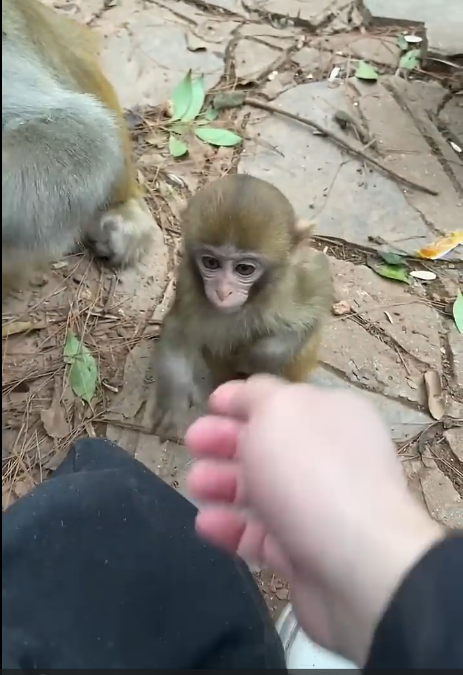
The humans reached the grove and began setting their nets. Boro knew his family was now safe, hidden high among the trees. But if the hunters stayed, they might come back later. He needed to make sure they never returned.
He grabbed a handful of half-eaten mangoes and leaped silently from tree to tree, positioning himself above the hunters. Then, with perfect timing, he dropped one mango right on a man’s head.
The splat was loud, and the reaction was instant. The man shouted in surprise, looking up just in time to see another mango flying at his face.
The forest erupted with chaos—Boro hooting and shaking branches, birds flying in panic, leaves raining down. The hunters swung their sticks wildly, trying to see who attacked them, but Boro was already gone, moving too fast to be seen.
He continued his assault from multiple directions, making it seem like there were many monkeys attacking. One hunter tripped on his own net and fell backward. The other panicked, shouting, “Go! Go! These monkeys are crazy!”
Within minutes, the men ran out of the grove, dropping half their gear behind.
Boro watched them disappear into the distance, his chest rising and falling. Then he let out a victorious cry—Waa-haa-haa!—and the forest answered him with echoes.
The troop, hearing the call, returned cautiously. Lala and Tiko clapped their tiny hands, jumping in excitement. “Big Boro saved us again!” they squeaked.
Boro smiled, but inside, he felt a quiet heaviness. He knew humans would return someday. They always did. And he would need to be ready—always vigilant.
The Night Watch
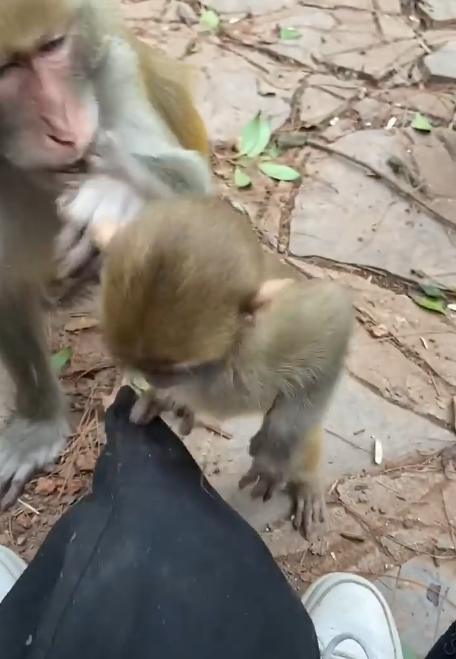
As the sun dipped below the horizon, the jungle began to glow with fireflies. The troop settled down for the night, huddling close on thick branches. Mothers cradled their babies; the young males groomed each other.
But Boro did not sleep.
He sat alone at the edge of a branch, watching the moon rise. His golden eyes reflected the silver light. He could hear the faint movements of owls and the distant howling of wild dogs. Every sound was familiar, yet his mind never rested.
He thought of his younger days, when he too had been reckless and playful. Back then, he never imagined he’d be the protector of so many lives. But time had taught him that leadership wasn’t about being the strongest—it was about being the most alert, the one who stayed awake when others slept.
He felt a small tug on his tail. It was Lala, the tiniest monkey in the troop, eyes half-closed in drowsiness. “Boro,” she murmured, “you always watch… aren’t you tired?”
Boro smiled softly and patted her head. “Maybe,” he thought, “but I’ll rest when it’s safe.”
Lala curled up beside him and drifted to sleep, trusting that no harm could reach her while Boro was awake.
Dawn of Peace
The next morning came with the chirping of kingfishers and the fresh scent of dew. The troop awoke to a calm forest once again. The hunters had not returned.
Boro stretched, his muscles rippling under his fur. The sun warmed his face as he looked over his troop with quiet pride. They were laughing, eating, and playing—free and safe.
A gentle breeze rustled the leaves, carrying the forest’s music. Boro felt peace for a moment, and though he knew danger could come again, he was ready.
The other monkeys respected him deeply. When danger approached, they looked to him first. When peace returned, they celebrated him with gifts of fruit and playful grooming.
In the heart of the jungle, legends grew about the big monkey who never slept, who guarded his family from harm, and whose golden eyes could see through darkness itself.
The Spirit of Vigilance
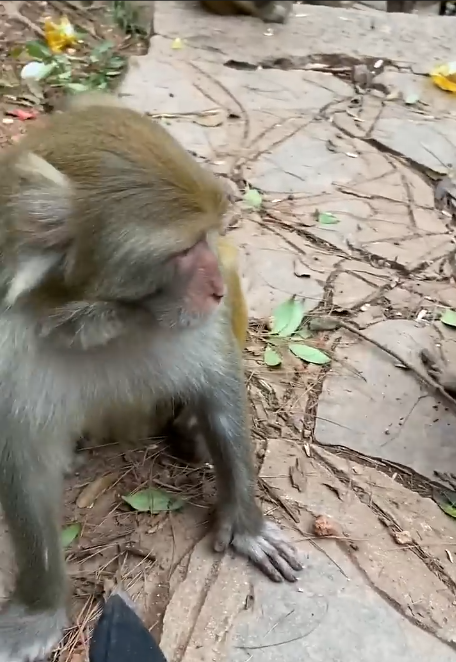
As years passed, new generations of monkeys were born, but Boro remained the same—steady, sharp, unyielding. Even as his fur grew grayer and his movements slower, his mind stayed quick. He taught the young ones how to listen to the forest, how to sense danger, and how to care for one another.
He often said, in his gruff but kind way, “Strength is good, but awareness keeps you alive.”
The younger monkeys admired him, not just for his power but for his heart. To them, he wasn’t just the leader—he was the soul of the troop.
And even after Boro was gone, the jungle still seemed to remember him. On quiet mornings, when the mist hung low and the forest was still, the monkeys would sometimes stop and look toward the old fig tree, feeling as if their vigilant guardian still watched from above.
Because some spirits never sleep.
And the legend of the big, vigilant monkey 👍 lives on—protective, wise, and forever watching.
